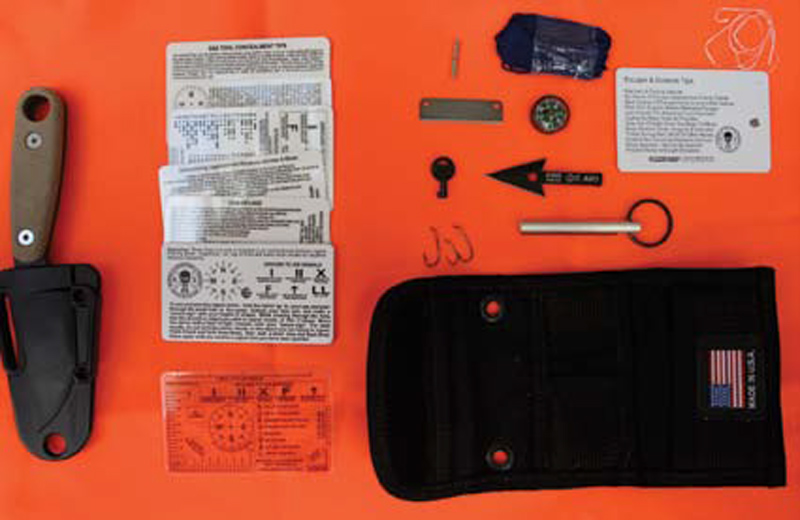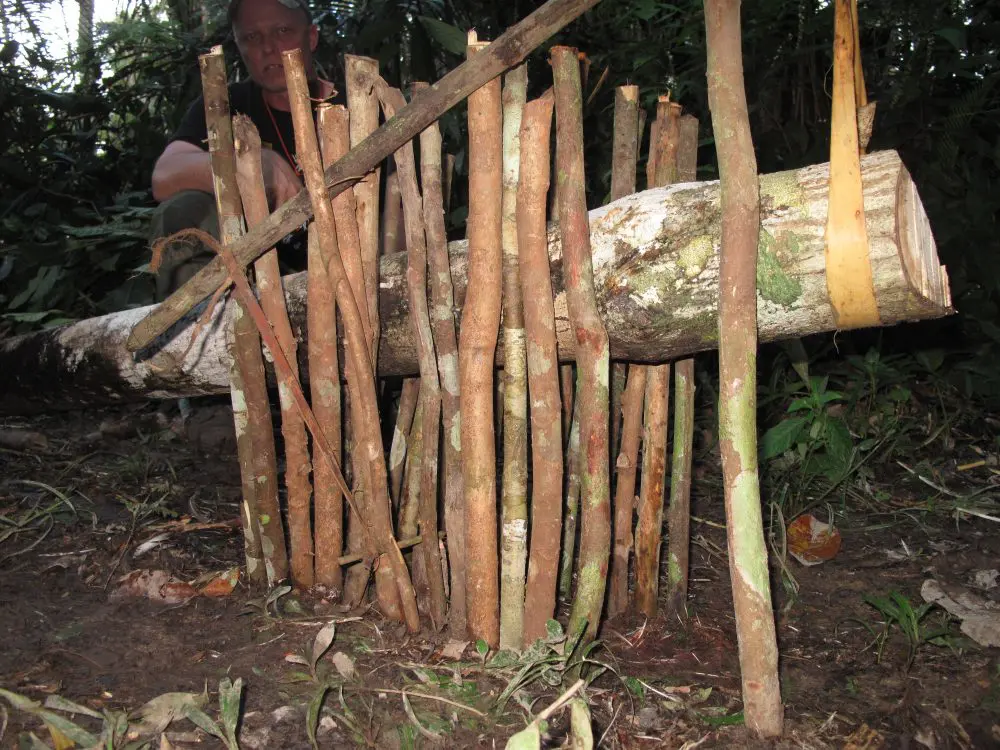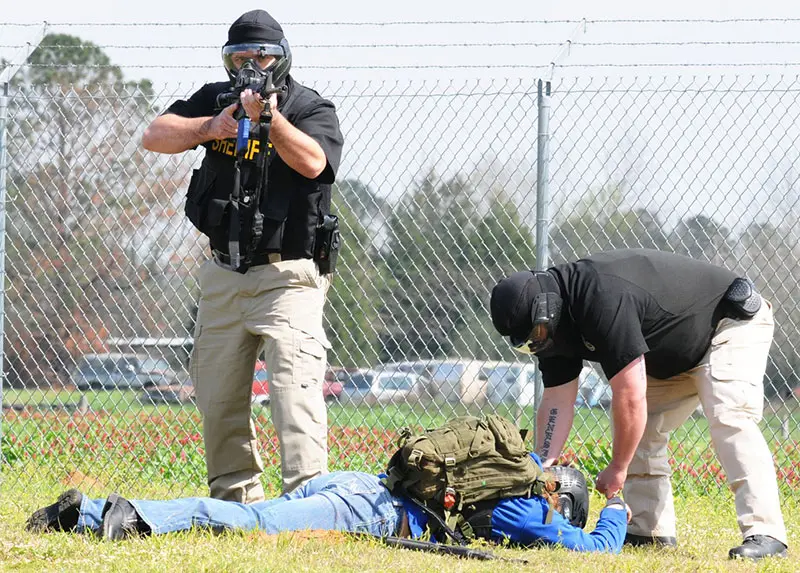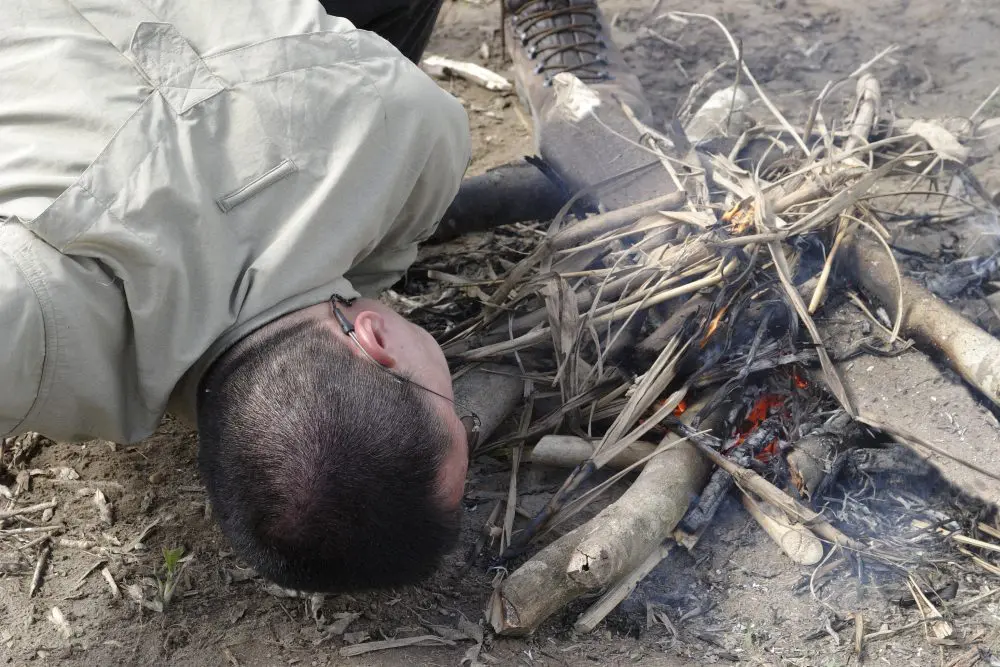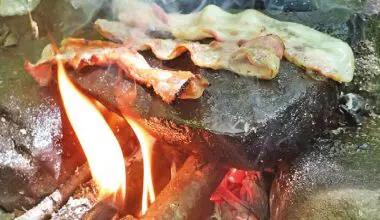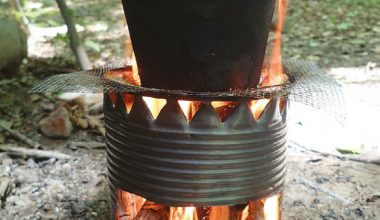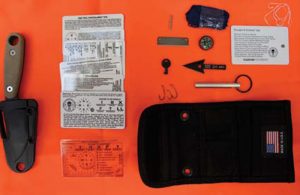
The neighborhood in question was Barrio Diana-Turbay—one of the most dangerous in all of Bogota, Colombia.
I was riding with a few local undercover cops in an unmarked vehicle. Suddenly, a group of Galil-toting policia were on our left in a large pickup truck, pointing their rifles and screaming at us. The brain’s synapses start firing rapidly under these circumstances, as those who have been in similar situations will tell you.
Simultaneously you start wondering: Are these the good guys who think we’re the bad guys? We should identify ourselves. Are these the bad
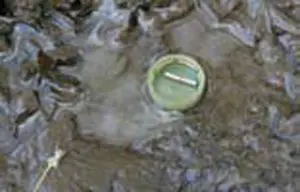
guys dressed like the good guys? (Uniforms mean little in these places.) Maybe we should start shooting? Do we try to get away from this kidnapping or do we just stay calm and try to plan an escape later? All the mental gymnastics that anyone who works in Latin America has to perform almost daily start bouncing around in your head.
This wasn’t the first time I’d had weapons pointed at me in a foreign country, but it was the first time it got me seriously thinking about contingency planning for kidnapping or escape and evasion (E&E) situations on non-U.S. soil.
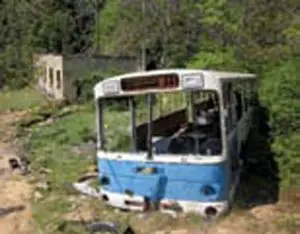
Much has been written lately about E&E. It seems to be a niche that has had a parabolic rise in popularity and products. Much of this can no doubt be attributed to our country’s valiant efforts against enemies who are likely to engage in kidnapping, torture, televised beheadings and the like in far-flung corners of the world.
Additionally, this type of work is no longer limited to soldiers. Federal agents and contractors are increasingly operating in semi-permissive environments. One of the companies providing products and training in this field is Jeff Randall and Mike Perrin’s ESEE Knives (formerly RAT Cutlery).
I recently had an opportunity to field test their Izula Gear Wallet E&E/Mini Survival Kit on a recent assignment to the Balkans. First impressions are favorable, as are first impressions on all of ESEE’s products. The kit is walletsized and carries some high-quality, well thought-out essentials for E&E purposes. I’ll discuss a few of the kit’s notable items in depth.
Table of Contents
CARRY COMPONENT
One necessary characteristic of E&E kits is a low-profile approach to design. Since you don’t know what type of security checkpoints you may encounter, it’s best not to have nosy third-world guards getting suspicious of your equipment. The wallet itself is low profile and “normal” enough to pass for a typical Cordura type with Velcro closure. One could (and should) hide most of the components in other places and use the wallet plus the more benign items (some of the string, cards, button compass) with money, credit cards and other items usually carried in a wallet.
It has various carry options: it can be strapped to a pack or belt, or if fitted with a chain or cord through the grommets, can be worn around the neck. If size and discreetness are not critical, a small fixed blade can be attached using these same grommets. Like almost all ESEE products, it is made in the United States. (The tag displaying the U.S. flag is easily removed if that is a concern overseas.)
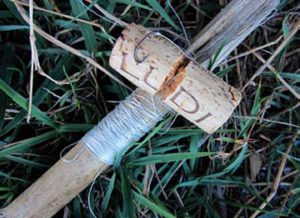
ESCAPE COMPONENTS
Determining when or even if you should attempt an escape is a decision matrix beyond the scope of this article, so we’ll stick to our focus: if you do decide to make a run for the border, what can this kit do for you?
Plastic Handcuff Key > Not too much to elaborate on here except that a) it works and b) it’s completely undetectable by any metal detectors, since it contains no metal. X-rays and patdowns may be another story. Plan accordingly.
Kevlar Cordage > This is a very useful product. It can be employed in the traditional manner for uses as varied as those for 550 cord. But it has an added benefit: it can be used to saw through flex-cuffs. If you’re really in extremis, e.g., cuffed on some dirty concrete basement floor, this cordage could be used to extricate yourself or your companions.
Titanium Razor Blade > Based on the tests I’ve conducted, this is completely undetectable by airport walk-through magnetometers. Some handheld magnetometers picked it up if it’s held very close to the wand. Again, patdowns and x-rays may reveal it.
EVASION COMPONENTS
Cards > The pocket on the right side of the wallet holds waterproof cards, printed with enough information to make up a book on E&E. Among other things, they contain Morse code, ground-to-air signals, survival tips, and instructions for everything from evading capture to concealing kit components to snare building.
Particularly useful are the navigation card and the clear plastic map tool card containing 1:24,000, 1:50,000 and 1:100,000 scales.
The information compiled on these cards is distilled from experts’ experiences in various fields (jungle survival, federal law enforcement, etc). No armchair mercenary stuff here, just solid advice.
Button Compass > This traditional small (20mm) button compass, while not a milspec lensatic compass, easily provides sufficient direction. I’ve tested it in a couple of countries and found it to be quite sufficient for most navigational needs. I used it in Albania to navigate a Soviet tunnel system built into a hill. With a maze of hallways and small concrete rooms that were used for unknown nefarious purposes, it would be the perfect location for placing recently kidnapped victims. Being able to navigate your way out would be critical.
Rare Earth Magnet > Button compass too big for you? Local gendarme decided they need it more than you? No problem. Included in the kit is one of the coolest items I’ve ever seen. The rare earth magnet is the ideal E&E component.
It’s so small that it will pass even a cavity search (I’ve heard, I’ve only heard!). It can be used to navigate because when free to move, it immediately and always points North. I employed various methods to field test it.
In the first one, I suspended it from the floss included in the kit and got a consistent North reading every time. An alternate method works just as well: place the magnet on a leaf or other flotation device and put that on a water surface. Under a completely occluded afternoon sun, I used a discarded bottle cap and small puddle of water in the forest to instantly find North.
Fish Hooks And Floss > You may need to evade for a few days, which would obviously require food and water. Included in the wallet are the necessary components for fishing. Using the enclosed “Flosscard” (a credit-card sized holder of 11 meters of floss) and the smaller sized fish hooks, I fashioned a makeshift fishing kit to hook some minnows in a lake in Albania. One of the main characteristics of E&E is the ability to repurpose items. In the photo above, you can see an innocuous wine cork I picked up to use as a bobber for the fishing kit. Worked as well as anything from Cabela’s!
Fire Starter > Fire in an E&E situation is a judgment call, the pros and cons again being beyond the scope of this article. But this kit includes a good sized ferro rod. The included arrowhead or titanium blade makes a nice striker. Just add tinder and fuel.
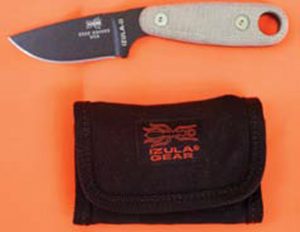
Arrowhead > ESEE’s arrowhead is as good as you’d expect from a company that’s rapidly risen to the forefront of edged tools for true survival situations. It possesses a double-edged tip with lashing points. Its uses are limited only by the imagination: improvised weapon, food-catcher, fish-cleaner, etc.
Unable to carry it onboard the aircraft on a recent overseas trip, I hid it in my checked baggage. To protect the bag and the arrowhead, I stuck a simple pencil eraser over the pointed tip. This worked well and did not dull the blade.
Signal Mirror > Once you’ve made it to a relatively safe place, you’ll need to be able to signal any search parties out looking for you. Included in the kit is a high-quality signal mirror with sighting hole. What I like about this model are the extra care and expense involved in having the mirror covered with an opaque film. This prevents unnecessary reflection if you are trying to hide, and it also protects the surface of the mirror from getting scratched up. (A dull mirror is not nearly as effective.) Just peel off the film when you’re ready to use it.
CONCLUSIONS
If your work carries the potential risk of an extended involuntary stay on foreign soil, the Izula Gear Wallet E&E Kit is a great piece of gear. But remember that skill always trumps gear. Buying this and tossing it in your ruck for your next trip to Hellhole-istan is not a panacea for kidnappings or survival situations. Knowing how to use the components and the concepts of E&E are just as important.
BACK IN BOGOTA …
Fortunately, the pickup truck in Bogota contained legitimate Colombian police who were very suspicious of nice cars full of people in that neighborhood. Experience has taught them to shoot first or they may not get a chance to shoot at all, so they always roll up ready.
But cooler heads prevailed, and no shots were fired. The lesson still hit home to me and, for once, it was a lesson I didn’t have to learn the hard way. I like that kind!
